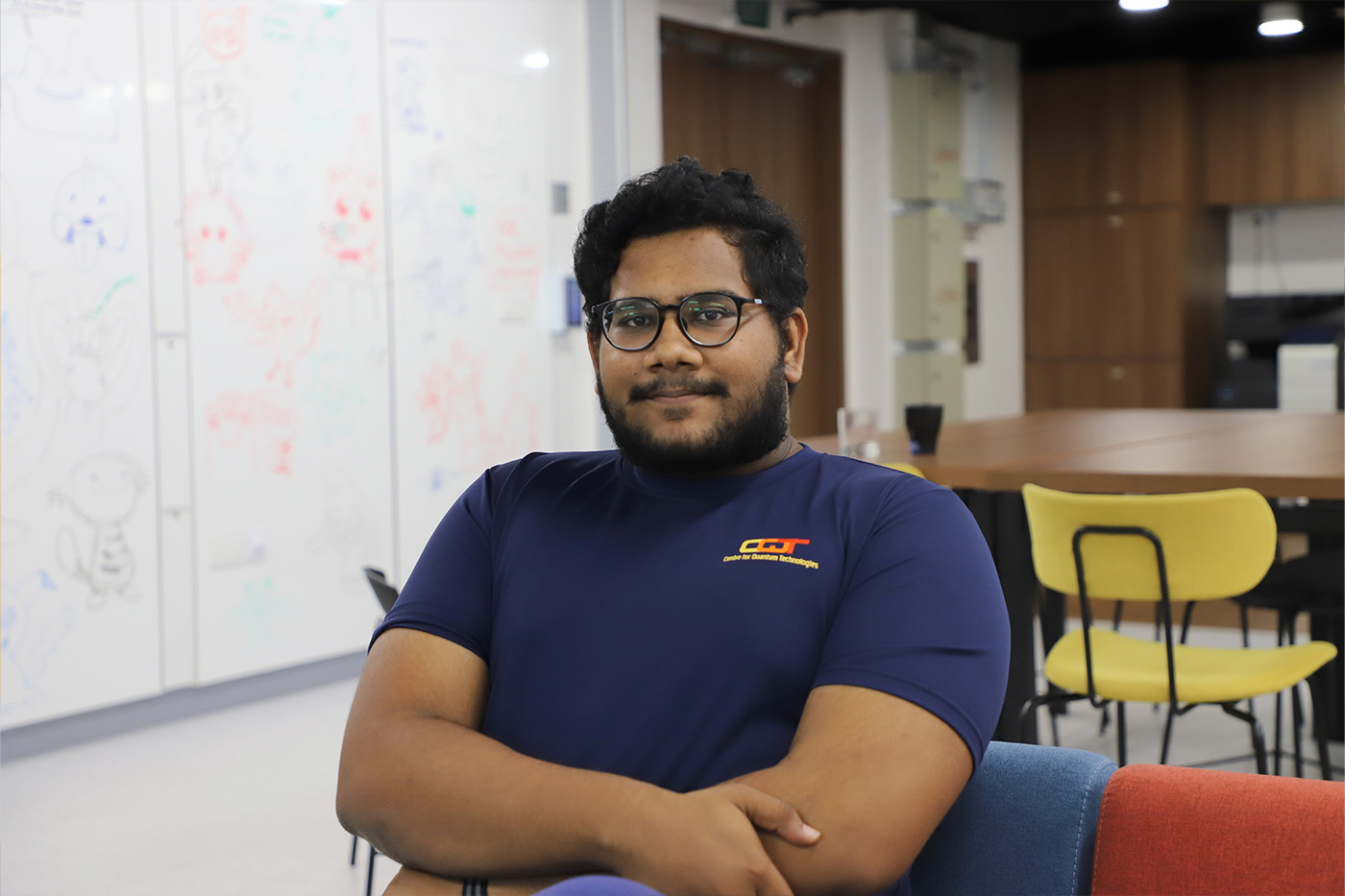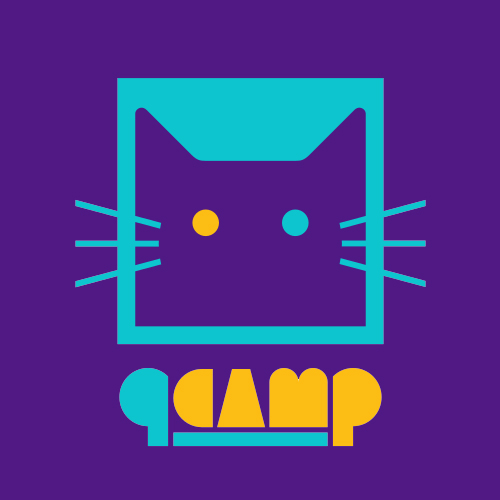Highlights
Meet a CQTian: Shaik Muhammad Abdillah Bin Hanifah Marican
 Shaik is working on space-based QKD in Principal Investigator Alexander Ling's group. After joining QCamp in 2017 as a junior college student, Shaik will now be joining QCamp 2024 as a CQT PhD student and volunteer.
Shaik is working on space-based QKD in Principal Investigator Alexander Ling's group. After joining QCamp in 2017 as a junior college student, Shaik will now be joining QCamp 2024 as a CQT PhD student and volunteer.
You first came to CQT as a junior college student. Can you tell us more?
It all started at QCamp. I was already interested in physics in junior college, so I joined QCamp in 2017. Through attending QCamp and interacting with the PhD students and postdocs, I realised being a researcher is a viable career path. It is something that resonated with me then and continues to resonate with me now.
I then tried to gain as much research experience as possible. After junior college, I landed an internship with Principal Investigator Manas Mukherjee’s group. Before I started studying physics at Nanyang Technological University (NTU), Singapore, I joined the online Qiskit summer school by IBM. During undergrad, I took up research projects and also did an internship under the A*STAR Research Internship Award.
Now, I’m a first-year PhD student in the group of Principal Investigator Alexander Ling. CQT honestly feels a bit like home in a way. It is kind of amazing I made it here — there is a nice symmetry because CQT was my first experience into what physics is like as a career.
What do you remember about your experience at QCamp?
It was just good wholesome fun. It was mainly lectures and we had a lab on quantum key distribution (QKD) and a lab tour. I remember Principal Investigator Valerio Scarani gave a talk and gave out his book Six Quantum Pieces to all the students. We asked him to sign it, and I still have my signed copy. I also kept my old QCamp t-shirt. I think the content of QCamp now, as compared to 2017, is quite different given how much the field has changed.
Will you be involved in this year’s QCamp?
I will be! I experienced QCamp and it is something that motivated me to be here. Naturally, I do want to come back and help. I’m helping out as a shadow lecturer, with the QKD hands-on experiment, and tutorials. Beyond that, I will try to be involved, talking to the students and sharing my experience.
What are you currently working on?
I am working on space-based QKD. We’re collaborating on a planned mission coming up. Right now, we are working on some preliminaries such as making sure our instrumentation will be compatible with other missions. I am also working on a related project on space situational awareness, which is the tracking of space debris and assets. Understanding where these objects are in space and how they move will be important.
Are you enjoying the work?
I am. It is completely different from my previous experience in university — a lot of my research projects then were on quantum computing — so I am trying to learn as fast as I can. It is a lot of reading, coding, and sometimes frustration because you will make mistakes along the way. Since I just started my PhD in January, I am finding my footing and making sure that I approach work in a holistic manner, that I don’t just work.
What drew you to physics?
Initially, I was convinced that I was going to do chemistry because I was more interested in it. But my physics teachers in junior college really showed the thought process in doing physics and the significance behind it. I really wanted to understand how the laws were created and not just use them as a set of tools for engineering. That made me read deeper, and it was also when I learnt about the history of quantum physics.
Do you have book recommendations?
Quantum by Manjit Kumar, The Theoretical Minimum by Leonard Susskind and George Hrabovsky. Valerio’s Six Quantum Pieces is also really good, and Richard Feynman’s Six Easy Pieces.
Outside of work, what do you enjoy?
Over the weekends, I like to play board games and go for walks. I’ve been finding some clarity in being away from technology, which is a bit weird as I’m surrounded by cutting edge technology in the labs that control things the size of an atom.
I am also very interested in physics education, outreach, physics communication and teaching. I have plans to do a bit of volunteer work — I was a tutor for three years during national service tutoring underprivileged students. I’m still working things out, but I also hope to conduct a science outreach programme for students to learn physics, not to pass exams but as a way of thinking and for them to gain an appreciation for the subject.
Related Stories
Meet a CQTian: Mile Gu May 16 2024 | |
Meet a CQTian: Divesh Aggarwal May 16 2024 | |
 | Curiosity meets quantum at CQT’s QCamp June 13 2023 |






